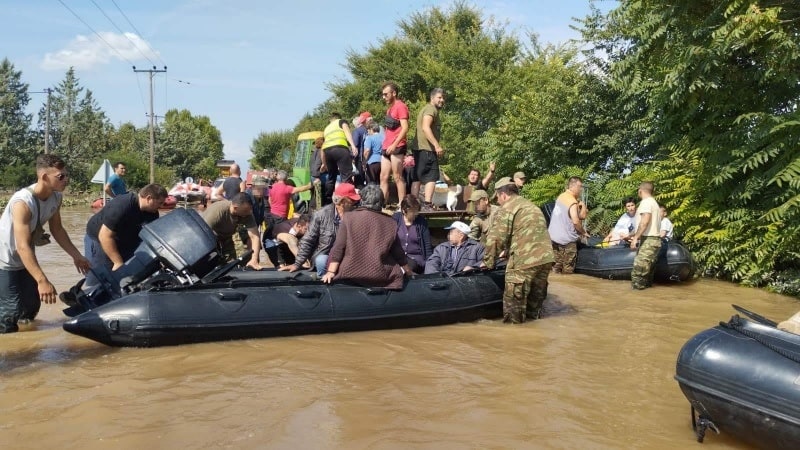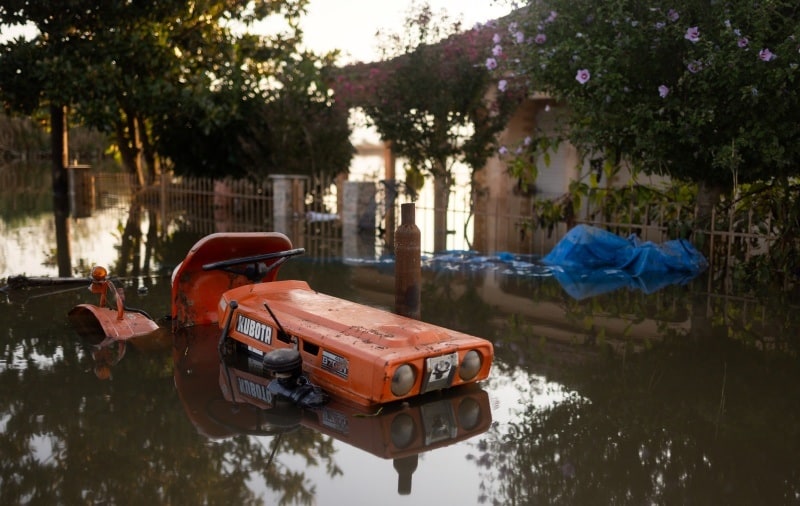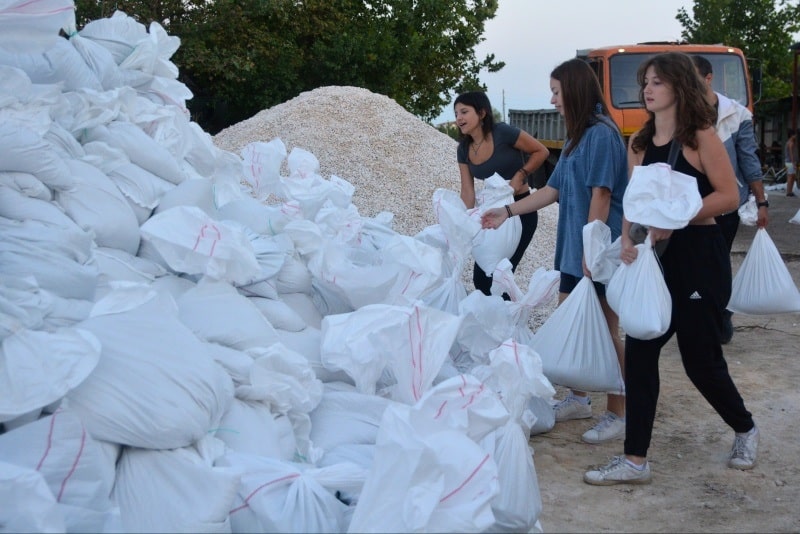Larissa in central Greece continued to prepare for more flooding from the overflow of the Pinios River on Sunday.
Sections of the metropolitan region such as Yiannouli and Nea Smyrni have already been evacuated, along with residents in the city proper who have been warned to move to higher floors of their buildings or the hill of Alcatraz Park in the centre.
At the same time, the city of Thessaly had been bracing for more flooding, with preparations as of Saturday of crews trying to prepare for the diversion of possible floodwaters away from the city centre and placing water pumps at critical points.
Evacuations of residents in surrounding sections of the metropolis to three temporary housing facilities continued, as surrounding villages have been inundated by muddy water and road access has been interrupted at several points. Surrounding cultivations are underwater.
Contaminated waters
In Volos, the port city of Thessaly, power was partially restored on Saturday afternoon while the water network is still being repaired. Water provided by rotation at specific times is not drinkable, and residents must pick up bottled water from the town hall in Volos and those nearby towns.
Villages in eastern Pilio are still isolated, and several evacuations have taken place by sea after the road network suffered severe damage.
On Sunday, Alternate Health Minister Irini Agapidaki warned the public in Thessaly and other flooded areas to drink only bottled water.

In a briefing televised from the Fire Brigade and Civil Protection Operations Coordinating Center in Larissa, she said that residents in affected areas should treat stagnant water as being contaminated.
The local authorities will notify them when it is safe to drink tap water.
She underlined that pets and farm animals should be isolated in areas where animals have died, and residents should notify authorities locally to remove the carcasses. The minister said the collection and destruction of dead animals already began at dawn on Sunday.
At the same time, she warned residents that they should adequately protect themselves from contact with dead animals (pets, rats, and snakes) brought into their homes by floodwaters and from exposed power lines.
Agapidaki added that mobile teams from the National Organization of Health Services Provision (EOPYY), besides local health centres, would provide additional help. She said that medicine needs have already been met for older people through local health services.
At the same time, the minister warned residents to seek medical advice if they exhibit symptoms of a rash, fever, cough, headache and diarrhoea so that authorities may determine the cause in case further measures are needed in their area.
Dead animals
Farm animals that died in Thessaly, which was severely flooded during the recent 'Daniel' storm, will be cremated in special crematoria in Imathia (northern Greece) and Arcadia (Peloponnese), the Agricultural Development and Food Ministry said on Sunday.
The dead animals will be transported in special refrigeration trucks to certified cremation facilities in the two regions. A ministry statement said that more facilities will be used in the rest of Greece as soon as circumstances allow.

Meanwhile, if veterinary inspectors allow, some will be buried in exceptional grounds.
A decision to collect and dispose of the bodies was made on Saturday during a meeting, including the alternate health ministry, agriculture-related authorities, regional officials, and the company licensed to collect the dead animals.
The registration of dead animals will be based on the Veterinary Service's official data, cross-checked with data from the Organization of Greek Agricultural Insurance (ELGA), rather than on-site inspections by ELGA, the ministry said.
READ MORE: Evzonoi: Tourist bus collided with two cars - Three dead.


